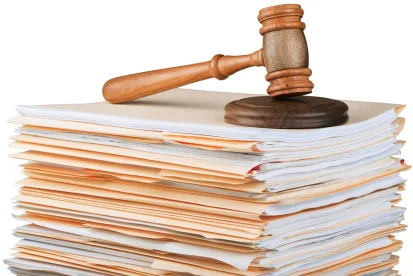Because of the quasi-judicial nature of arbitration and the limited powers given to arbitrators under the Federal Arbitration Act (“FAA”) to control discovery, how a party to an arbitration goes about seeking evidence from a recalcitrant witness has caused some controversy. Different courts have come up with different interpretations about whether arbitration subpoenas are enforceable against third-party witnesses. The issue only arises where third-party evidence is sought and the third parties refuse to cooperate. In a recent decision, the Second Circuit had to address the enforceability of an arbitration panel’s summons under Section 7 of the FAA in a reinsurance dispute.
In Washington National Insurance Co. v. Obex Group LLC, No. 19-225-cv, 2020 U.S. App. LEXIS 14062 (2d Cir. May 1, 2020), an arbitration panel issued summonses to third-parties to appear and produce documents at a hearing. The third-parties failed to appear and the party seeking the evidence petitioned the court to enforce the summonses under Section 7. The district court denied the third-parties’ motions to dismiss the petition for lack of jurisdiction and to quash the summonses. The circuit court affirmed.
Section 7 of the FAA provides that:
if any person or persons so summoned to testify shall refuse or neglect to obey said summons, upon petition the United States district court for the district in which such arbitrators, or a majority of them, are sitting may compel the attendance of such person or persons before said arbitrator or arbitrators, or punish said person or persons for contempt in the same manner provided by law for securing the attendance of witnesses or their punishment for neglect or refusal to attend in the courts of the United States.
In affirming, the circuit court concluded that each of the third-parties’ arguments was without merit. The third parties argued that the court lacked diversity jurisdiction, the summonses did not comply with FAA § 7, that the district court erred in refusing to quash without considering their objections, and that the district court lacked authority to grant the petition in the Southern District of New York. Each argument was rejected.
The court found that the only parties relevant for jurisdictional consideration were the parties to the petition and that there was jurisdiction. On the validity of the summons issue, the court noted that the properly issued summons is not rendered invalid by an offer or agreement to produce documents without a hearing. The court also noted that Section 7 contains no limit on the number of documents that may be deemed material. Section 7, said the court, only requires that the documents to be produced “may be deemed material as evidence in the case.” The court found no basis to conclude that the summonses did not comply with Section 7.
The court also concluded that the district court properly declined to rule on the third-parties’ objections. Nothing in Section 7, said the court, required the court to consider objections based on Federal Rules of Civil Procedure Section 45.
As to venue, an issue that has become controversial in the past, the court found that for purposes of these summonses, the arbitrators were sitting in the Southern District of New York and it did not matter that that arbitrators once sat in the Eastern District of Pennsylvania concerning another summons. The court noted that the arbitration provision stipulated that arbitration would take place in New York, New York, unless the parties agreed otherwise.
Under this ruling, it is clear that in the Second Circuit, as long as the summons is issued for a hearing in the district where the arbitrators are sitting for purposes of the summons, the summons will be enforced. It does not matter to the present enforcement action that the arbitrators sat in other jurisdictions for other purposes.




 />i
/>i

